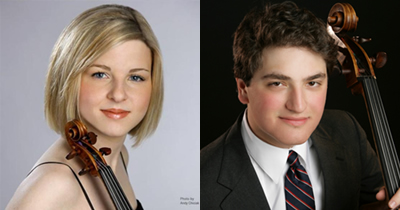Situating Beethoven’s only opera, Fidelio, in the last half of the XXth century, to coincide with the destruction of the Berlin Wall, may be a great way to bring recent history to life, but it does not really add much to the reputation of Beethoven or to the appreciation of some of the composer’s most sublime music. However, by the clever use of projections and the amplified voice of President Ronald Reagan asking Gorbachev to “tear down this wall,” the two centuries distancing the actual plot fell by the wayside. Opera Carolina‘s 1987 Berlin wall version only occasionally requires the audience’s “willing suspension of disbelief.”
There have been other re-settings of Fidelio to fit other politically oppressive times – Glyndebourne (a non-descript Balkan prison camp, 2001), Fidelio on Robben Island (South Africa, 2004), the Santa Fe Opera’s Nazi prison camp version (2014) – but the sub-plot, in which the jailer’s daughter falls in love with the condemned prisoner’s wife, disguised as a man, often becomes ludicrously unbelievable.
Nonetheless, the music is beautiful, powerful and moving, regardless of the epoch or the setting. Indeed, the last time Fidelio was presented in Charlotte, it was in a concert version in 2004, side-stepping the difficulties presented by the authenticity of the cross-dressed wife and her purported fiancé, among others.
Soprano Maria Katzarava was stupendous in the title role (Fidelio/Leonore). Although not totally convincing in the trouser part (she is barely as tall as her mock fiancée, and stunningly feminine), she sang with the strength of a heroine and the beauty of the angel her imprisoned husband, Florestan thinks she is. Her first act aria “Komm Hoffnung,” in which she begs for hope to help her fulfill her mission, was a showstopper! Kudos to the horns and bassoon for an excellent and refined accompaniment!
Florestan, who appears only in the second act, is sung by tenor Andrew Richards with fervor and passion, although his opening aria comparing Leonore to an angel was more furtive and breathless than I was expecting, no doubt due to the awkward and cramped crouch imposed by the prison chains. The soaring duet of reunion with his wife (“O namenslose Freude!”) was another highpoint of the evening and stunningly sung by both Leonore and Florestan.
Rocco, the jailer and other participant in both the main political plot and the comic sub-plot to wed his daughter to the disguised Fidelio/Leonore, was admirably sung by bass Andrew Funk who played the most convincing character of the evening. Rocco’s boss and the antagonist of the opera is the evil Pizarro, in this staging renamed Walter Ulbricht, who evokes for people of my generation, the evil dictator of East Germany in the 1960s, but who died 13 years before the dismantling of the Berlin Wall. The conniving Ulbricht/Pizarro was convincingly sung by the excellent bass, Kyle Pfortmiller.
Rocco’s daughter, Marzelline, was sweetly sung by soprano Raquel Suarez Groen, whose first duet with erstwhile suitor, Jaquino, tenor Brian Arreola was obscured by an overly loud orchestra. Acoustics played a large part in befuddling the balance because when singers sang from stage right, balance improved appreciably, but when stage left (my side of the stage, seated a dozen rows back on the main floor) all singers were challenged by the orchestra, most of whose sound seemed to come from stage left (my right). [I suspect the projection of the topless pit so far into the theater may be the cause of the directional singularities of the Belk Theater.]
The Act I prisoners’ chorus was moving, if static, and the full chorus, which only appears at the triumphant liberation of Florestan was festive. The condemnation of Ulbricht/Pizarro was presided over by the Mayor of Berlin, Walter Momper (Don Fernando in Beethoven’s original) admirably sung by bass Dan Boye.
The excellent Charlotte Symphony was in the pit, conducted with verve and precision by Opera Carolina’s General Director, James Meena, now in his 15th season at the helm of the successful opera company.
Fidelio will be performed in the Belk Theater on Thursday, October 22 at 7:30 pm and Sunday, October 25 at 2:00 pm. See the side bar for more information.
For an academic discussion of the character structure in Fidelio, click here.











